Input interpretation

fluorocyclohexane
Chemical names and formulas

formula | C_6H_11F name | fluorocyclohexane alternate names | cyclohexane, fluoro- | cyclohexyl fluoride | fluorocyclohexane/Cyclohexyl fluoride mass fractions | C (carbon) 70.5% | F (fluorine) 18.6% | H (hydrogen) 10.9%
Lewis structure
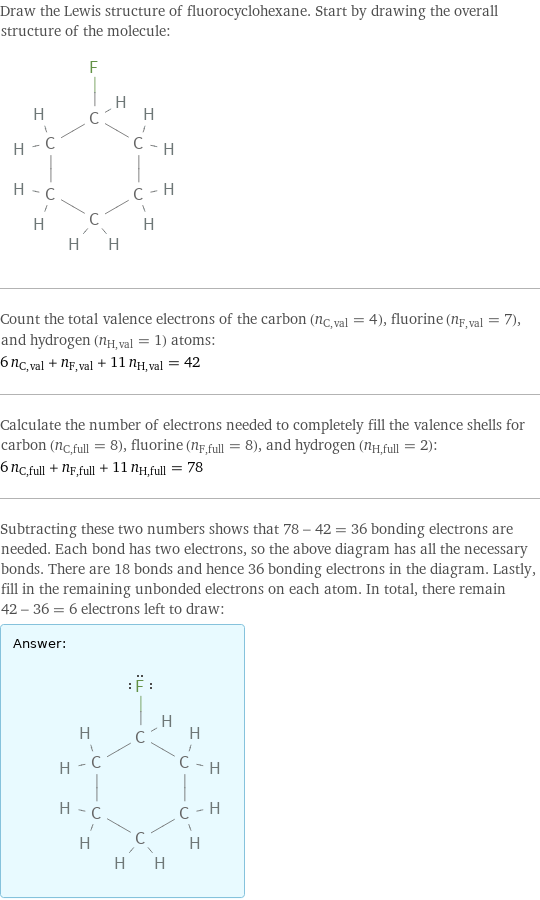
Draw the Lewis structure of fluorocyclohexane. Start by drawing the overall structure of the molecule: Count the total valence electrons of the carbon (n_C, val = 4), fluorine (n_F, val = 7), and hydrogen (n_H, val = 1) atoms: 6 n_C, val + n_F, val + 11 n_H, val = 42 Calculate the number of electrons needed to completely fill the valence shells for carbon (n_C, full = 8), fluorine (n_F, full = 8), and hydrogen (n_H, full = 2): 6 n_C, full + n_F, full + 11 n_H, full = 78 Subtracting these two numbers shows that 78 - 42 = 36 bonding electrons are needed. Each bond has two electrons, so the above diagram has all the necessary bonds. There are 18 bonds and hence 36 bonding electrons in the diagram. Lastly, fill in the remaining unbonded electrons on each atom. In total, there remain 42 - 36 = 6 electrons left to draw: Answer: | |
3D structure
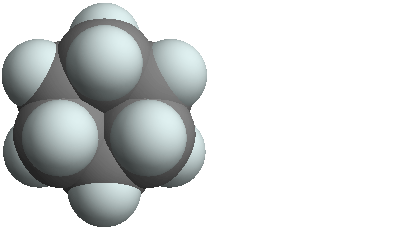
3D structure
Basic properties
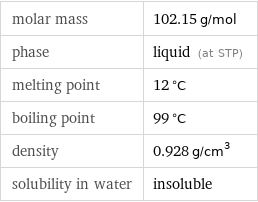
molar mass | 102.15 g/mol phase | liquid (at STP) melting point | 12 °C boiling point | 99 °C density | 0.928 g/cm^3 solubility in water | insoluble
Units

Liquid properties (at STP)
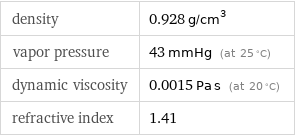
density | 0.928 g/cm^3 vapor pressure | 43 mmHg (at 25 °C) dynamic viscosity | 0.0015 Pa s (at 20 °C) refractive index | 1.41
Units

Thermodynamic properties

molar heat of vaporization | 32.5 kJ/mol specific heat of vaporization | 0.318 kJ/g (at STP)
Chemical identifiers
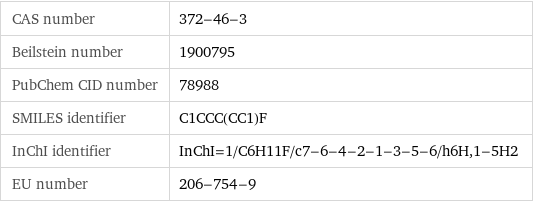
CAS number | 372-46-3 Beilstein number | 1900795 PubChem CID number | 78988 SMILES identifier | C1CCC(CC1)F InChI identifier | InChI=1/C6H11F/c7-6-4-2-1-3-5-6/h6H, 1-5H2 EU number | 206-754-9
Safety properties

flash point | 9 °C

DOT numbers | 1993